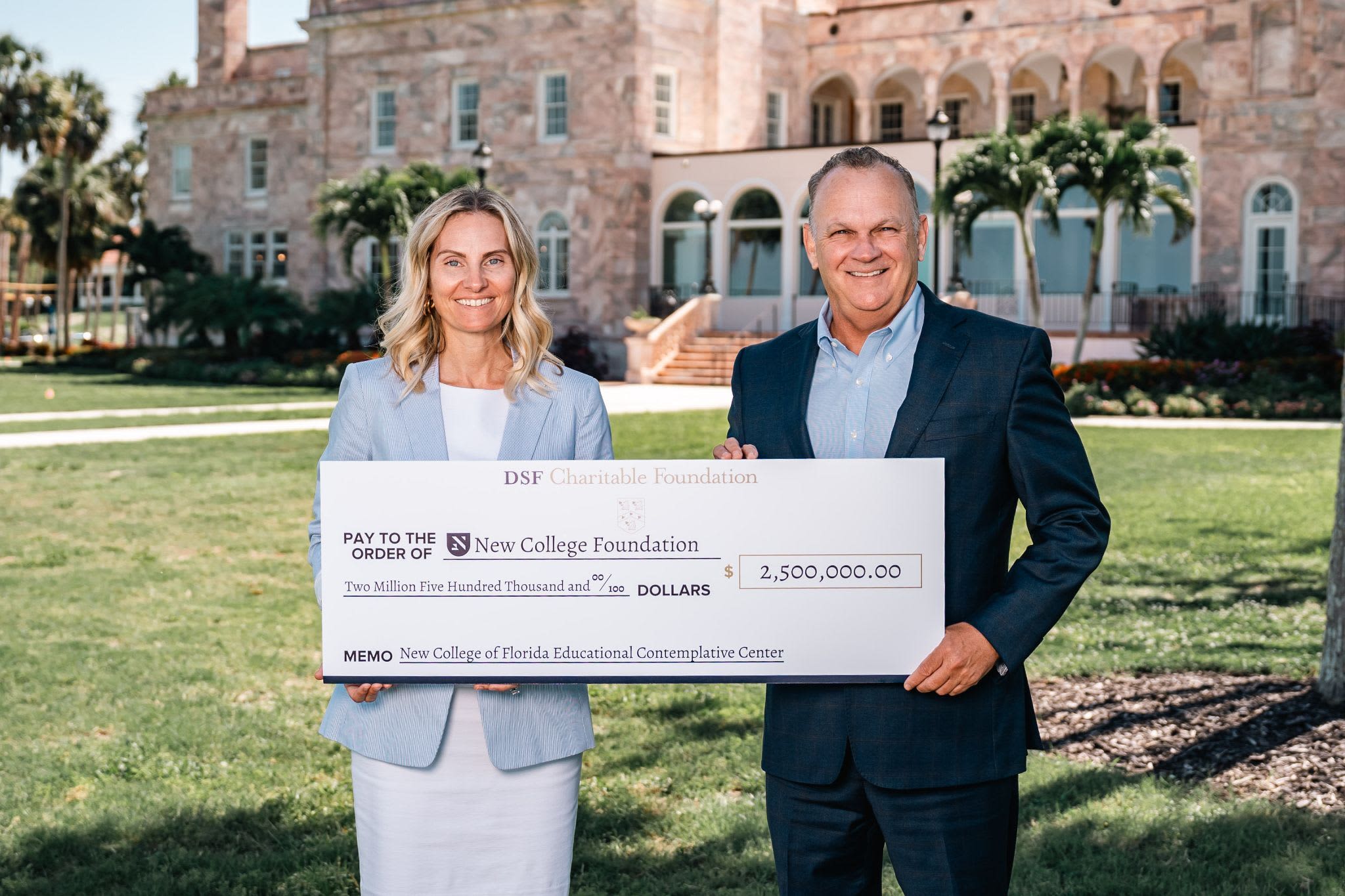Donating Money Helps Charities and Your Bottom Line, Too

Image: Melitas/Shutterstock.com
While donating to a cause is an act of altruism, its benefits go beyond the feel-good factor. Savvy donors know that strategic philanthropy can lead to bottom-line benefits—and sometimes even boost their business reputations. To learn more, we caught up with Sharon Bloodworth, who has been in the financial planning industry for 30 years, and who, for the past six years, has owned White Oaks Wealth Advisors, one of the largest independent investment advisory firms wholly owned by a woman in Minnesota and Florida. Her Florida office is based in downtown Sarasota.
How can I maximize the tax benefits of my donations?
“One effective strategy is using a Donor-Advised Fund. A DAF is like a holding tank for your charitable funds, allowing you to donate money into the fund and decide later which charities will receive the donations. This makes things flexible, especially in years when you have higher income and, as a result, a higher tax burden. For example, if you sell a business, contributing a larger amount to your DAF can help offset the significant taxes for that year. You can distribute the funds over time based on your specific needs of the year.”
How can giving an appreciated asset, like a stock, benefit my tax situation?
“If you donate a stock that has appreciated significantly in value since you purchased it, you can avoid paying capital gains tax on the increase in value. For instance, if you bought a stock for $5 and it’s now worth $100, donating it means you don’t pay taxes on the $95 gain. This strategy is known as donating low-basis stocks, and it allows you to make a more substantial charitable contribution while receiving a deduction for the current market value of the stock.”
Can you explain what a Charitable Remainder Trust is and how it benefits both donors and their families?
“It’s a way to provide for your loved ones and support your favorite charities simultaneously. When you establish a CRT, you place assets into a trust, and the trust provides income to specified beneficiaries, like a spouse. After a certain period or upon the beneficiary’s death, the remaining assets in the trust go to your chosen charity. This is so your spouse or other beneficiaries are taken care of while allowing you to secure a charitable deduction on your taxes. It also provides peace of mind that your charitable intentions will be honored, even after you’re gone.”
What is a Qualified Charitable Distribution and who can benefit from it?
“It allows people who are 70.5 years or older to donate up to $105,000 directly from their Individual Retirement Account to a charity without counting the distribution as taxable income. This is beneficial for those who are required to take minimum distributions from their IRAs but do not need the income for living expenses. By donating directly from the IRA, the amount transferred to the charity is excluded from taxable income, potentially lowering overall tax liability.”
How can corporate matching programs enhance the impact of my donations?
“Many corporations offer matching gift programs, in which they match the donations made by their employees to eligible charities. This is like a BOGO deal and can double the impact of your donation. For example, if you donate $1,000 and your employer matches that amount, the charity receives $2,000. It’s a powerful incentive that maximizes the benefit to the charitable organization and increases the satisfaction of giving, knowing that your contribution is amplified.”
What are some tips for donating wisely?
“Start by identifying your passions and do your research. Narrow down the charities you’re interested in and volunteer with them to get a better understanding of their work. Examine their financials and transparency using tools like Charity Navigator. If you have significant funds to donate, consider working with a certified financial planner, a certified public accountant and the charity’s gift officer to develop a strategic giving plan that maximizes your impact and tax benefits.”
What are some other ways of giving that you see pay off most?
“Anonymous giving is the most fun giving in the universe. It can be incredibly fulfilling because it removes the potential awkwardness of receiving public gratitude and allows you to focus on the joy of helping others. It can be as simple as paying for someone’s groceries. I once anonymously helped a friend who had been bankrupted by illness make a trip to attend a reunion he wanted to go to. We have clients who ask us to do it for them, too. It’s something anyone can do at any level. It’s really fun being a fairy godmother.”
Are there things potential donors should avoid?
“Don’t take out a loan to make a donation. In 2019, I received a Marty Baskerville Philanthropy Award when I took out a loan to donate to build a preschool in Indonesia after an earthquake had destroyed everything. If it wasn’t for preschool to help me with child care, I wouldn’t be where I am today, so we named it after my daughter—Sophia’s Sunshine School. I visited in 2018 and cried.
“As a financial adviser, was that stupid? Yes. I wouldn’t recommend it to others, but I knew I could pay it back over time and it brought me such happiness and joy.”



